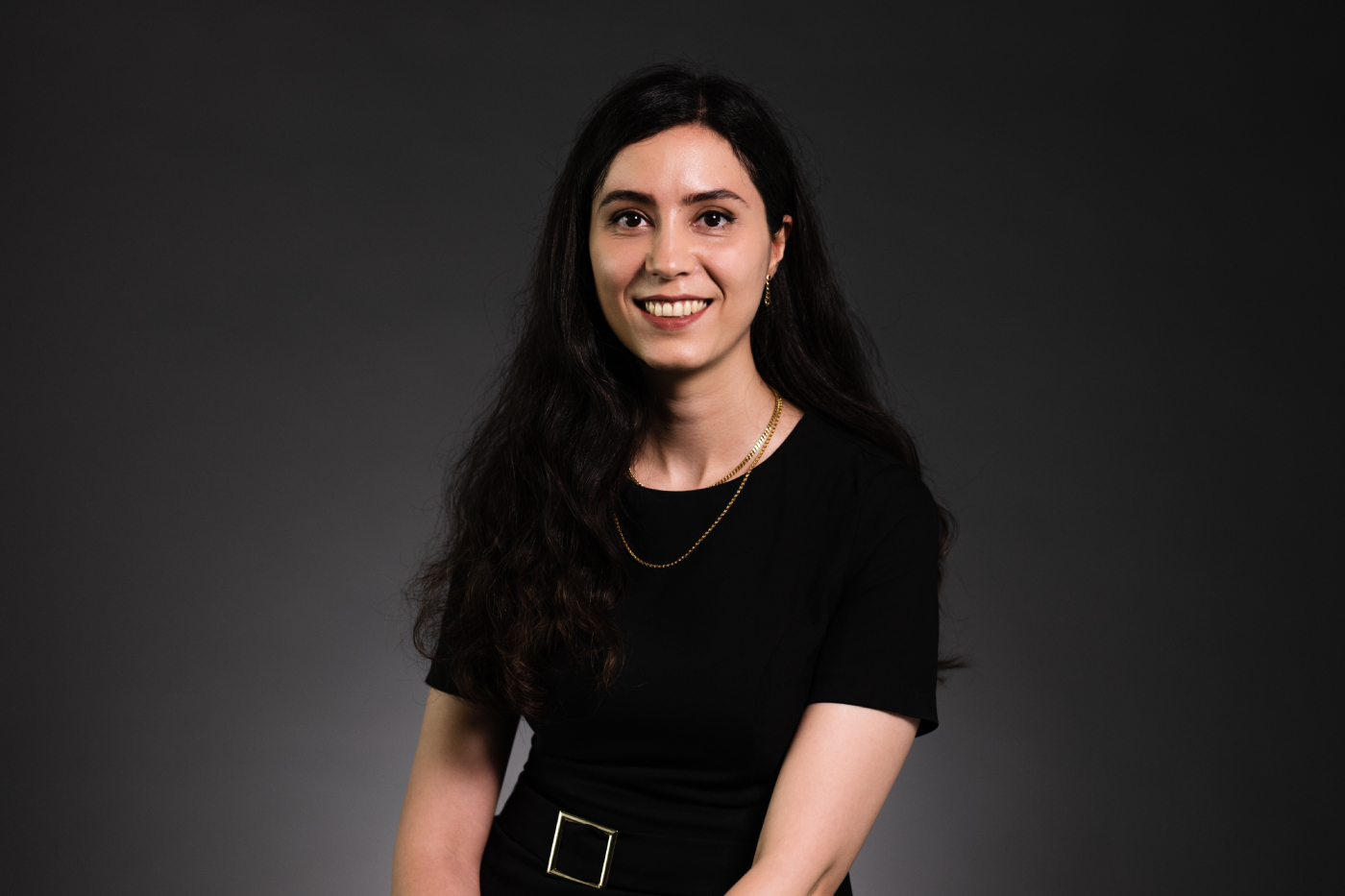
One of Bahareh's stories is about a crayon. A sad, white crayon that is envious of the other crayons' pretty colours. Which at first doesn't know what it might be needed for and what it can do. But the hero sets off on a journey to find this out, and in the course of the story discovers its magic powers – and tasks that only it can do due to the very fact that it is a white crayon.
Bahareh says there is a great deal of herself in this children's story. After all, she wrote it herself. "I, too, had first of all to learn self-confidence."
Bahareh is not just an author of children's books. In her day job as a project manager in the EDAG Group's test laboratory in Unterschleißheim, she checks whether and how the control units in a vehicle's camera sensor system communicate with each other. The 31 year-old development engineer explains that the subject of autonomous driving has always fascinated her. And working for the EDAG Group, this fascination flows into her daily work.
Bahareh's family comes from Iran. Her father had been working for a German company for a while when, in 1990, she was born in Hamburg. While she and her sister were still small, he returned to Teheran with the family, to take up a job as a mechanical engineer. Bahareh shared his enthusiasm for technology, and studied electrical engineering after school. For her thesis at the university, she developed a microchip for an implantable hearing aid, and published her scientific findings in three articles in a journal. After completing her degree, she worked for an oil company for two years. A good job. But life for a woman in Iran was not good – and she returned to her first home: Germany.
Not an easy step to take, as anyone knows who, like her, has previously studied in another country and has to apply for recognition of their degree in Germany. And then there's the complex German language, the rules of which are just about incomprehensible if you haven't spoken it from an early age. When doing her Master's degree in automation and software technology in Stuttgart - recognition for her Iranian Bachelor's degree having in the meantime been gained - she hardly dared to speak a word to begin with. If a professor asked a question or other students were chatting in German. She was afraid of making mistakes. "I always knew the answer, but didn't dare to speak," relates Bahareh looking back on this time when she was often unhappy and full of doubt.
But at some point she realised that the most important thing is not the language, but self-confidence. She decided just to go ahead and say something. "Of course the sentences were not correct, but the others thought it was a good thing that I was joining in and speaking my mind." Like in the story of the white crayon.
Bahareh laughs a lot when recounting her story. "Life's too short to learn perfect German," she says with a twinkle in her eye. And it doesn't play a very important role in everyday life with the EDAG Group. Her team is international. It includes colleagues from Spain, Albania and India. "My colleagues say that when I tell them something, they can feel my motivation. That's why I can convince the others so well." Passion counts for more than perfect grammar.
Bahareh joined the EDAG Group almost three years ago, after completing her Master's thesis with Bosch, where she was involved in the construction of an autonomous vehicle. Obviously, she had opportunities with the large corporation, but she decided in favour of EDAG. "This is where the interesting things are happening. We service providers do most of the development and testing," says Bahareh. Also, she enjoys the wide variety her work offers. "So far, there has not been a single day when I have not learnt something new," she says.
If a test proves successful, it can happen that Bahareh dances around the laboratory. Her colleagues know all about this. Here, she can be just as she is, she states. And the team is also there for each other during difficult times. This became evident when Bahareh's mother fell ill and died. Bahareh went to Teheran for two months. "I was given the time I needed. Nobody said to me,'Bahareh, you have to come back to work'. All they wanted to know was how I really was," she recalls. Any worry that her career might suffer on account of this time out of the office also vanished into thin air. Shortly after her return, Bahareh became a project leader.
Her test team, says Bahareh, is like a family. Sometimes, her colleagues also benefit from Bahareh's second passion. She not only writes and illustrates books in her spare time: she is also a passionate cook. Persian dishes such as kufte, meatballs with nuts and plums. Or mirza ghasemi, a traditional dish of an aubergine dip with eggs. She leaves herself plenty of time for this, sometimes spending hours in the kitchen. "If I have been writing or cooking, I am a much happier person at work the next day."
Her professional dream: to help to shape the smart city. In which cars and public transport are self-driving and everything is interconnected. And there should also be a smart café in this smart city. In which everything runs autonomously. And with the coffee, there will be napeloni, with Persian rose cream between layers of flaky pastry. Her favourite cake.